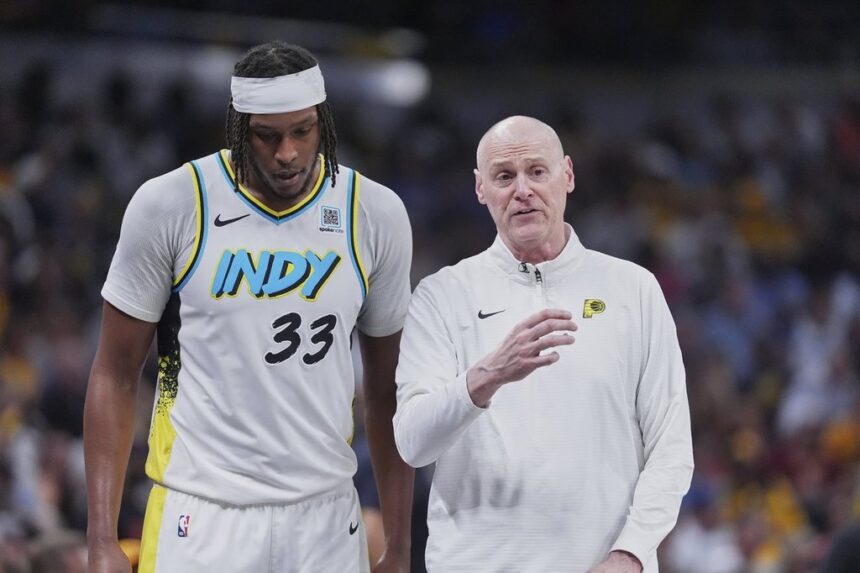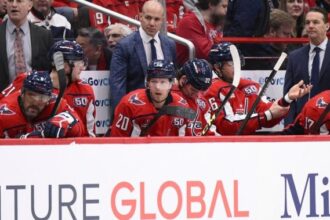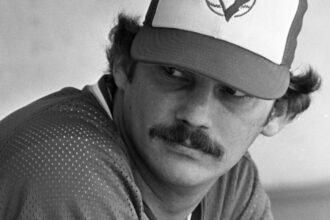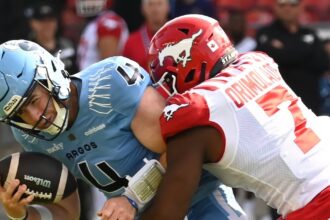In the ever-changing landscape of NBA basketball, few things are as remarkable as watching a championship-winning coach with decades of experience completely reinvent himself. Rick Carlisle, the architect behind the Dallas Mavericks’ 2011 championship run, has shown that sometimes the most valuable skill isn’t tactical knowledge, but adaptability.
The 2025 Indiana Pacers aren’t just playing basketball—they’re conducting a high-speed symphony that has captivated fans and confounded opponents en route to their second straight Eastern Conference Finals appearance. At the center of this transformation stands Carlisle, whose willingness to evolve might be the most surprising storyline of this NBA season.
“Earlier in my career, I was more rigid,” Carlisle admitted in a recent press conference. “You get older, you realize there’s different ways to skin a cat.” This refreshing self-awareness has translated into tangible results on the court, where Indiana has transformed from a rebuilding franchise into a legitimate championship contender in just three seasons.
Gone is the methodical, control-oriented coach who micromanaged every possession during his Dallas tenure. In his place stands a revitalized basketball mind who has embraced the chaotic beauty of pace-and-space basketball. The Pacers now lead the league in transition points and rank in the top three for pace—statistical markers that would have seemed impossible for a Carlisle-coached team just five years ago.
What’s particularly fascinating about this metamorphosis is how it contradicts conventional wisdom about aging coaches. While many veteran coaches become more set in their ways as their careers progress, Carlisle has done the opposite, displaying a remarkable openness to new ideas and approaches that has reinvigorated his coaching philosophy.
The catalyst for this change wasn’t just philosophical—it was personnel-driven. When Tyrese Haliburton arrived in Indianapolis, Carlisle recognized he had a once-in-a-generation facilitator who thrived in the open court. Rather than forcing Haliburton to adapt to his system, Carlisle built an entirely new framework around his young star’s strengths.
“Rick deserves enormous credit,” said former Pacers coach Frank Vogel. “He could have easily stuck with what worked for him in the past, but he’s completely reimagined his approach to match his roster. That’s what great coaches do.”
This willingness to adapt extends beyond just strategic adjustments. Carlisle has embraced a collaborative coaching style that empowers his players and assistant coaches. Veterans on the team describe a coach who now solicits input during timeouts and adjusts game plans based on player feedback—a stark contrast to the more authoritarian approach he once employed.
The cultural impact of this coaching evolution extends beyond basketball circles. In a society that often struggles with generational divides in the workplace, Carlisle—a Baby Boomer coaching predominantly Gen Z players—has become an unlikely case study in cross-generational leadership. His ability to connect with younger players while maintaining their respect demonstrates how traditional authority can be reimagined rather than abandoned.
Pascal Siakam, who joined the Pacers mid-season, noted the difference immediately. “Coach Carlisle has this perfect balance. He has all this knowledge from years in the league, but he approaches each day like he’s still learning. That’s rare, and it creates an environment where everyone feels valued.”
Of course, tactical adjustments matter too. Carlisle has implemented defensive schemes that maximize his team’s athleticism while minimizing their size disadvantages. He’s embraced the analytics revolution while maintaining a feel for the intangible aspects of the game. The result is a team that plays with both mathematical precision and emotional intelligence.
The question now facing the basketball world is whether Carlisle’s reinvention can carry the Pacers to an NBA championship. Skeptics point to their defensive limitations and relative inexperience in high-pressure moments. Believers counter with their offensive firepower and the psychological advantage of having absolutely nothing to lose.
What’s undeniable is that Rick Carlisle has given us something rare in professional sports: a master craftsman who, late in his career, was willing to question everything he knew and emerge with a fresh perspective. In doing so, he hasn’t just transformed the Pacers—he’s provided a compelling narrative about the value of intellectual humility and adaptability in leadership.
As Indiana prepares for their conference finals matchup, perhaps the most important lesson from Carlisle’s journey isn’t about basketball strategy at all. It’s about the courage to evolve when conventional wisdom suggests you should double down on what’s familiar. In that sense, regardless of how these playoffs end, Rick Carlisle has already achieved something remarkable—he’s shown that reinvention isn’t just for the young.

























